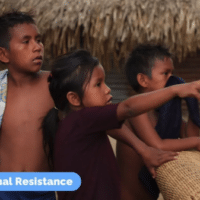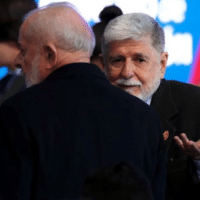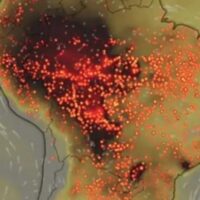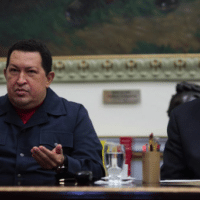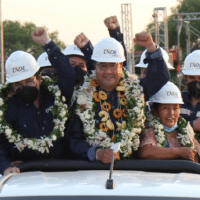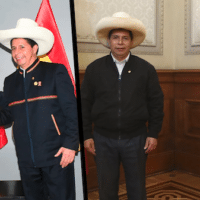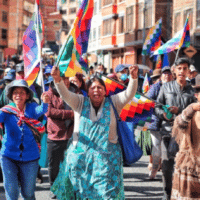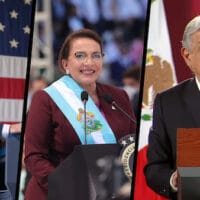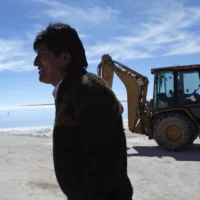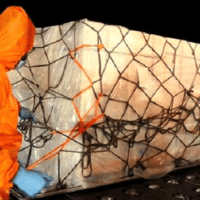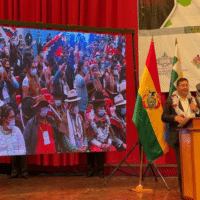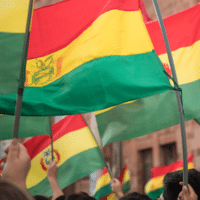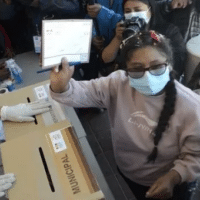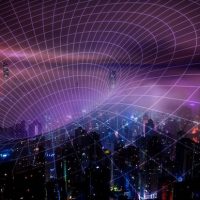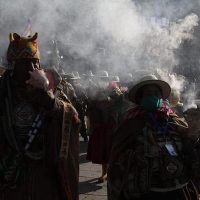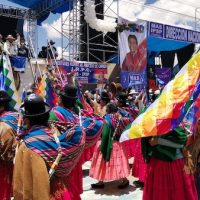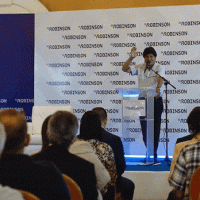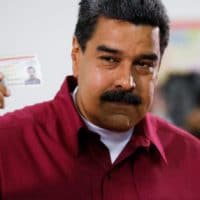-
Three women, three perspectives on the division in MAS
In “the street”, in friends’ meetings, in the press… everywhere the population wonders about the veracity, depth and state of the division within the Movement Towards Socialism (MAS).
-
Amazonian Huo̧ttö̧ja̧ People and the Bolivarian process: Río Cataniapo Commune (Part II)
A Huo̧ttö̧ja̧ community in the Venezuelan Amazon discusses their culture and organization as well as the Indigenous peoples’ rights established in the 1999 constitution.
-
Why Brazil opposes Venezuela’s BRICS membership
The 16th Summit of the BRICS organization is taking place this week in the Russian city of Kazan. President Nicolás Maduro was invited by the Russian president himself, Vladimir Putin, at the beginning of August, and is attending with a Venezuelan delegation.
-
South America faces one of the worst waves of wildfires in recent years
Most of the fires have been caused by deliberate burning of lands and improper disposal of highly polluting waste.
-
‘Clear as the full Moon’: The revolution will not be defeated
Who doesn’t remember when Chávez announced on national television that Maduro should be the candidate to succeed him in case he died? It was December 8, 2012, and this was the first time he talked about dying, at least in public, and the first time we wondered if our revolutionary process could really continue without him.
-
Bolivia: Electric powerhouse of Latin America
For the first time in Bolivia’s history, the country is now an exporter of electricity.
-
Mexico, Argentina, Bolivia, Colombia back Peru’s President Castillo, condemn ‘anti-democratic harassment’
Mexico, Argentina, Colombia, and Bolivia released a joint statement supporting Peru’s elected President Pedro Castillo, saying he is the victim of “anti-democratic harassment,” following a U.S.-backed right-wing coup.
-
Bolivian president issues warning about destabilization attempts
The far-right opposition in Bolivia’s Santa Cruz department has been seeking to destabilize the socialist government of President Luis Arce using the Population and Housing Census as pretext.
-
U.S. govt’s Summit of the Americas fails: Boycott by presidents of Mexico, Bolivia, Honduras, Guatemala
As the U.S. government’s Summit of the Americas opens in Los Angeles, California, the presidents of Mexico, Bolivia, Honduras, and Guatemala have refused to attend, protesting the exclusion of Cuba, Venezuela, and Nicaragua.
-
Evo Morales urges Bolivia to withdraw from OAS as more Presidents look to skip Latin American Summit
Bolivian ex-President Evo Morales suggested Sunday that his country should leave the Organization of American States, the international organization that Morales says “provoked” the 2019 coup d’etat against him.
-
China Sends Bolivia 3 Million COVID-19 Vaccines
Bolivia has received three million Sinopharm COVID-19 vaccines from China, the largest delivery of vaccines to arrive in Bolivia from the Asian superpower.
-
Luis Arce: An anti-imperialist climate agenda
Luis Arce Catacora: President of the Plurinational State of Bolivia Speech
-
Despite U.S. dirty tricks, Bolivia is finding a way to stay independent
Pressure to prevent Morales from running in the election in 2019 mounted early, but it failed. The opposition—with the full backing of the U.S. government—tried to undermine the October 2019 election by painting it as fraudulent. With no real evidence, the military—with a green light from Washington, D.C.—moved against Morales, sending him into exile.
-
To Western Media, prosecuting Bolivian coup leaders is worse than leading a coup
Brutal dictators supported by Washington have no reason to doubt that establishment journalists and big NGOs will try very hard to keep them out of jail. Removing the threat of U.S.-backed coups from the world will involve a constant struggle against Western media and the sources they present to us as reliable.
-
Socialists win in 7 Out of 10 subnational Governments
The Movement Towards Socialism is the only party with a broad presence in the country’s nine regions.
-
Struggling for ecosocialism in the time of Elon Musk
Elon Musk has been pronounced the wealthiest person on earth, slightly overtaking Jeff Bezos. Musk is known for his unhinged outbursts online and generally bizarre behaviour. In this respect, he epitomises the increasing craziness of capitalism.
-
Towards a geopolitics of popular power
Lecture given at the event: “The Collapse of the Unlawful State and the Recovery of Democracy”, held in La Paz, on December 14, 2020, in the auditorium of the Vice Presidency of the Plurinational State of Bolivia.
-
When Bolivians defeated U.S. imperialism with democracy
The resounding victory of the MAS presidential ticket in the elections held on October 18 came after a year of struggle against the U.S.-backed coup regime.
-
Evo Morales: In Venezuela there was a Democratic ‘Fiesta’ on December 6
“There is peace, tranquility and yesterday there was a great democratic ‘fiesta’,” the former president of Bolivia and international observer of Venezuela’s elections, Evo Morales, emphasized this Monday.
-
Crying wolf on election fraud is OK at NYT—if targets are official enemies
President Donald Trump’s categorical refusal to accept what seems like an inevitable and increasingly crushing election loss has many in media rightly worried about the political repercussions of such a move, with some sounding the alarm over a potential coup d’etat in the U.S. (e.g., Salon, 11/11/20; Washington Post, 11/12/20; Guardian, 11/13/20; New Republic, 11/13/20).

![Evo Morales [Source: declassifieduk.org]](https://mronline.org/wp-content/uploads/2022/08/Screen-Shot-2022-08-01-at-10.09.48-AM-200x200.png)
